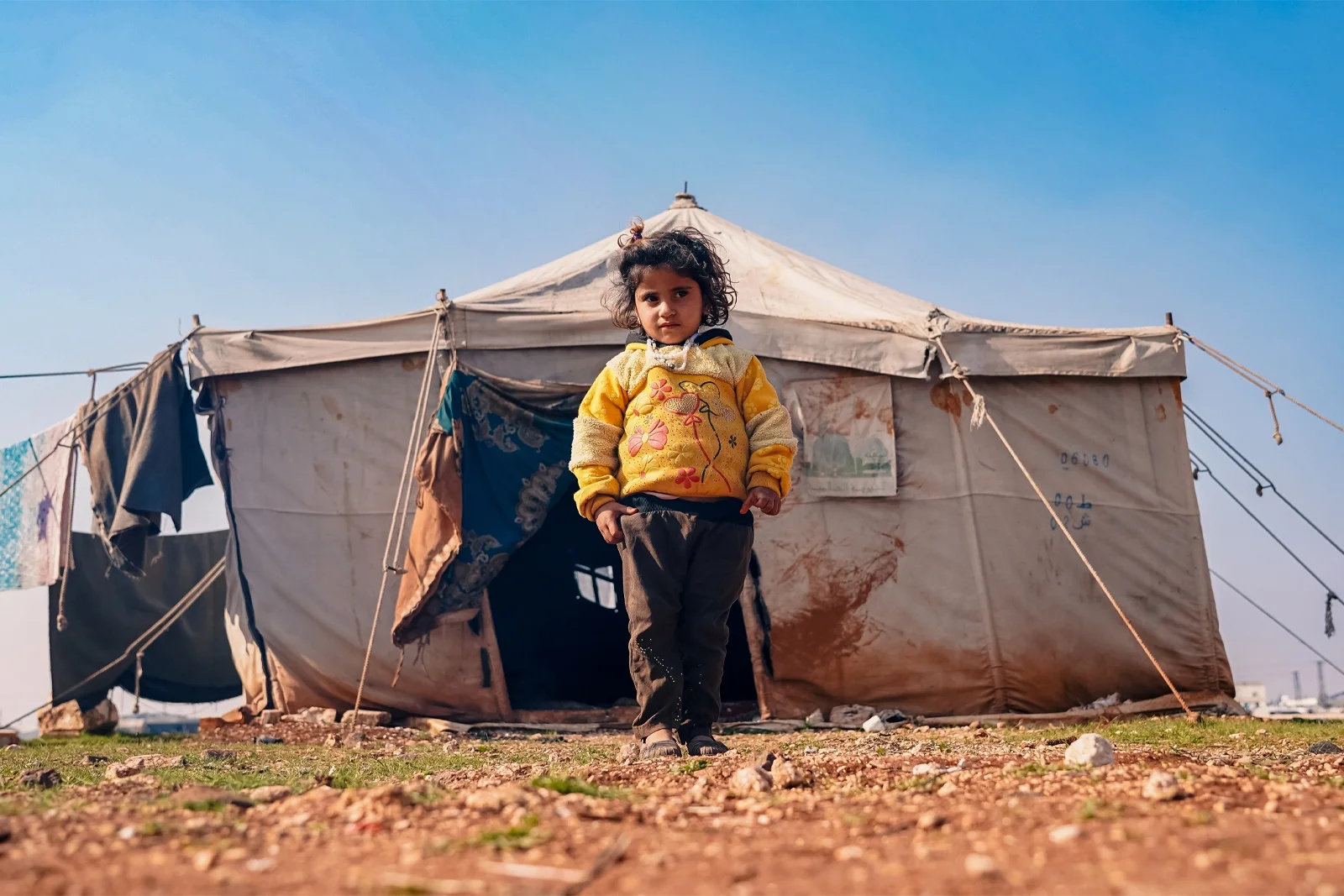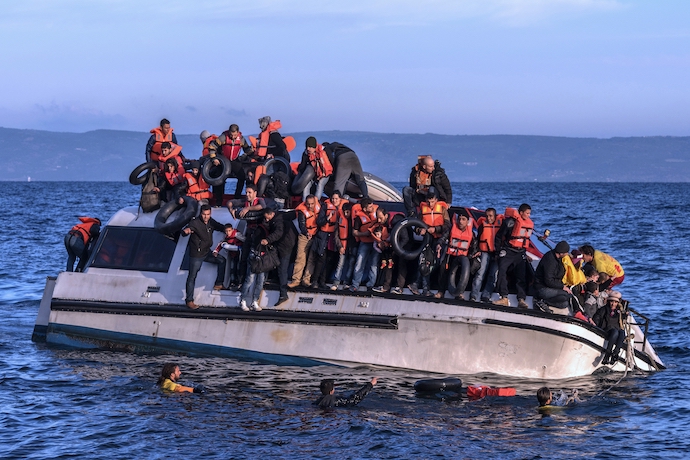
Turkey is Debating the Syrian Refugee Question
On December 8, 2024, 500,000 Syrians took to the streets in Istanbul to celebrate the overthrow of President Bashar al-Assad’s government. “I didn’t expect it to happen one day, not even in three centuries,” said a Syrian student who fled Aleppo. The unexpected end to the Assad regime shook the globe. And while many watch intently as the new Syrian government takes shape, questions linger for the 7.4 million refugees who have fled Syria since 2011. When will it be safe for Syrians to return home? And do they even want to return?
Turkey is at the center of this debate. It hosts 3.8 million refugees and asylum seekers and about 60% of all Syrian refugees. In December, it quickly opened its shared border with Syria to allow refugees to return home. But the repatriation of Syrians will not be a fast process or an end to Turkey’s “refugee problem.”
Despite years of hosting millions of Syrian refugees, Turkey’s current migration policies—overseen by the Presidency of Migration Management (PMM)—are struggling to meet the moment. The programs offer neither sufficient protection nor a viable path toward integration.
To ensure the safety of displaced Syrians and bolster long-term stability, Ankara must rethink its approach. Expanding immigration channels, strengthening integration initiatives, and investing in local development aren’t just humanitarian imperatives—they’re also strategic moves that could enhance national security and serve Turkey’s broader foreign policy goals.
Turkey is a signatory to the 1951 Refugee Convention and related protocols. However, national legislation only affords the status of “refugee” to individuals fleeing persecution from European Union member states. Individuals fleeing from other countries, including Syria, are given “temporary status.” Turkey’s Temporary Protection Status (TPS) program offers education, healthcare, and pathways to citizenship. However, individuals under the TPS program are not allowed to move freely and experience issues accessing work permits.

Turkey has forcibly repatriated Syrian refugees in intervals since 2019, not abiding by the principle of non-refoulement. Since December 2024, Turkey has stopped processing Syrian asylum claims altogether and promoted repatriation, despite warnings from the United Nations that all returns must be voluntary, dignified, and safe. Its actions increase instability in an already fragile context.
As Atilla Toros steps into his role as Director General of the Presidency of Migration Management, the urgency of his mandate could not be clearer. Among his first priorities should be the immediate resumption of asylum processing—a critical lifeline for countless individuals caught in limbo. Equally vital is the expansion of Turkey’s immigration infrastructure, bolstered by sufficient financial support and trained personnel, to meet the demands of one of the world’s most complex humanitarian challenges.
But bureaucratic efficiency alone will not suffice. A meaningful reform agenda must also address structural barriers faced by the nearly 3.6 million Syrians residing in Turkey. That means policies that facilitate greater freedom of movement, legal access to employment, and full participation in the social and economic fabric of Turkish society. These measures are not only humane; they are pragmatic. They could begin to mitigate the acute risks posed by forced repatriation and offer Syrians protection from escalating violence and targeted attacks.
Already, some progress has been made. Roughly 240,000 Syrians have acquired Turkish citizenship, embedding themselves in local economies and communities. Many have launched businesses, created jobs, and contributed to the country’s cultural and commercial vitality. Their integration into the formal workforce is not a burden but a potential engine of growth—both economic and social.
As Toros takes the helm, the path forward is clear: Turkey stands at a crossroads. One direction leads toward isolation and coercion—the other, toward dignity, inclusion, and resilience. The time for decisive action is now.
In fact, Turkey needs Syrian labor to support its ongoing recovery from the 7.8-magnitude earthquake that struck southeast Turkey and northern Syria in 2023. In response, Ankara pledged to build 650,000 homes but has only constructed 200,000 to date. With greater access to the workforce, Syrians can support the construction of the 450,000 additional homes that the Turkish government pledged to build.
Reforms to Turkey’s migration policies can improve relations with other resettlement countries, like Jordan and EU members. The current migration program is primarily funded by the national government. Reforms can garner renewed investment from institutions like the EU, the UNHCR, and the International Centre for Migration Policy Development that have previously funded Turkey’s migration programs.
Amid mounting public unease, both Turkish citizens and their elected officials have voiced skepticism toward efforts to broaden the country’s immigration policies. In recent years, social tensions between host communities and foreign-born populations have grown increasingly pronounced. A significant portion of the population now favors repatriation over long-term integration.
Yet, the proposed immigration reforms may, paradoxically, serve the interests of Turkish citizens themselves. Under current policy, Turkey requires most Syrian refugees to remain in the province where they first arrive—a mandate that has disproportionately strained border regions such as Kilis and Gaziantep. By easing these geographic restrictions, the reforms aim to redistribute responsibility more equitably across the country, alleviating pressure on the provinces least equipped to bear the brunt of the refugee presence.
Lifting movement restrictions will allow Syrians to settle in other provinces and reduce the density of refugees in border areas. It will also distribute the internationally mandated responsibility to welcome refugees among Turkish provinces. Effective communication of the benefits of this migration policy through the Directorate of Harmonizing and Communication will be critical to the success of the reforms.
Expanding Turkey’s migration program stands to improve the lives of displaced Syrians, stimulate domestic development, and enhance the country’s strategic clout on the global stage. Turkey now finds itself at a critical inflection point—caught between normalizing relations with the new Syrian government, the recent appointment of a new director to the Presidency of Migration Management, and the solemn second anniversary of the devastating earthquake that reshaped the country’s southeast.
These converging milestones offer a rare moment of international focus and political will. By advancing thoughtful migration reforms, Ankara can both reaffirm its humanitarian commitments and assert itself as a regional power uniquely positioned to bridge humanitarian imperatives with geopolitical advantage. The challenge is whether Turkey will meet this moment with ambition—or let it slip into history as a missed opportunity.
